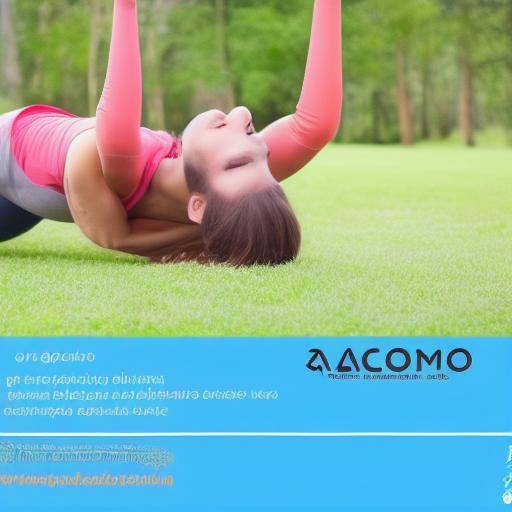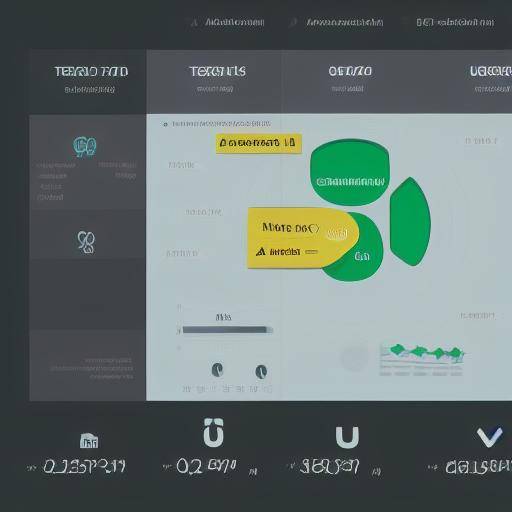
Self-care is a fundamental element in maintaining a healthy balance between work and personal life. At present, where accelerated pace and labour demands can significantly affect people's quality of life, understanding the importance of self-care becomes crucial. In this article, we will explore in depth the meaning of self-care, its relation to work-life balance and personal well-being, as well as practical strategies for its implementation. We will discover how self-care can positively influence all aspects of our life and how their absence can generate negative effects both on personal and professional matters.
Introduction
The aim of this article is to deepen the notion of self-care and its impact on work-life balance. We will explore the historical context of self-care, its evolution to date, as well as its influence on personal and professional well-being. In addition, we will provide a global overview of how to effectively implement self-care in daily routine, with practical advice backed by experts and case studies. We will discover, through comprehensive and comparative analysis, how self-care can be harmoniously integrated with labor responsibilities to promote a more balanced and healthy lifestyle.
History and Background
The concept of self-care has its roots in the ancient wisdom of diverse cultures and traditions, where personal care was considered an integral part of a full and balanced life. Throughout history, different civilizations have attached importance to the practice of self-care as a means of preserving health, harmony and integral well-being. Over time, self-care has evolved, adapting to social, economic and technological changes. Today, self-care is recognized as an essential element in maintaining a satisfactory balance between labour demands and personal life.
During different historical periods, self-care has undergone significant changes, adapting to the changing needs and expectations of society. Different philosophic currents, medical advances, and social movements have directly influenced the conception and practice of self-care. Its importance has been increasing, being recognized not only as an individual act, but as a prerequisite for the sustainable development of communities and collective well-being.
Analysis in Deep
Self-care encompasses a broad spectrum of practices and attitudes that promote personal well-being. From balanced diet, regular physical exercise, to effective stress management and mental health care, self-care encompasses numerous dimensions that influence quality of life. These practices not only impact individual well-being, but have a significant impact on labour productivity, interpersonal relationships and the overall enjoyment of life.
The benefits of self-care are evidently observed in various aspects. At the personal level, self-care promotes health, prevents diseases and contributes to longevity. In addition, it strengthens emotional resilience, improves self-esteem and fosters a sense of purpose and satisfaction in life. In the workplace, self-care reduces the risk of burnout, increases productivity and facilitates a more harmonious and collaborative working environment.
Despite the obvious benefits, self-care is not without challenges. At present, the accelerated pace of life and labour demands can hinder the effective integration of self-care into the daily routine. The lack of awareness of the importance of self-care, as well as the working culture that promotes over-requirement and personal disconnection, represent significant obstacles to the successful implementation of self-care.
Detail
To effectively integrate self-care into the work routine, it is crucial to adopt practical strategies that align with professional responsibilities. This implies establishing clear limits, prioritizing tasks and effectively delegating responsibilities. In addition, fostering an organizational culture that values the well-being of employees, promoting a healthy balance between work and personal life, becomes an imperative to ensure the successful implementation of self-care in the working environment.
In this context, work-life balance takes on a fundamental role. The ability to balance labour responsibilities with personal and family needs is closely linked to the practice of self-care. Work-life balance allows individuals to devote time and energy to meaningful activities outside the workplace, strengthening their emotional, physical and relational well-being. Consequently, work-life balance becomes a powerful ally in the promotion and facilitation of effective self-care.
Comparative analysis
By comparing self-care, work-life balance and personal well-being, it is observed that these concepts are intertwined significantly. Self-care is the basis on which a healthy balance can be built between work and personal life. In turn, work-life balance acts as a key facilitator for the effective practice of self-care, promoting a holistic approach that encompasses all dimensions of life. In this sense, personal well-being emerges as the tangible result of harmonious integration of self-care and work-life balance, manifesting itself in a full, satisfactory and balanced life.
Tips and Suggested Actions
Below we present a series of practical and suggested actions that can help integrate self-care into the daily routine, promoting a healthy balance between work and personal life:
- Establish clear limits between the time devoted to work and the time devoted to rest and recreation.
- Prioritize activities that promote physical, emotional and social well-being.
- Practice effective stress management through relaxation, meditation or mindfulness techniques.
- Promote digital disconnection outside working hours to devote quality time to personal activities.
- Find support and maintain a network of solid relationships that promote an environment of emotional and social support.
- Seek a balanced diet and an active lifestyle that promotes comprehensive health.
Industry Perspectives and Expert Reviews
Personal and labor development experts agree on the importance of self-care and work-life balance to promote a healthy and productive lifestyle. They emphasize the need to promote working environments that foster a culture of self-care and balance, recognizing the direct impact these aspects have on the overall productivity and well-being of employees.
According to studies and analyses carried out by different institutions, it is evident that organizations that prioritize the well-being of their employees and promote a healthy balance between work and personal life experience a reduction in the labour rotation index, an increase in productivity and a significant improvement in the organizational climate.
Case Studies and Real Life Applications
In order to illustrate the effectiveness of self-care and work-life balance, we present real cases of individuals and organizations that have successfully integrated these practices:
Case 1: XYZ Company
XYZ implemented concrete measures to promote work-life balance among its employees, including time flexibility, wellness programs and spaces for rest and recreation. As a result, there was an increase in labour satisfaction, a reduction in stress and an improvement in overall employee productivity.
Case 2: Juan Pérez
Juan Pérez, a professional in the financial sector, adopted self-care practices in his daily routine, such as performing meditation exercises, maintaining a balanced diet and establishing clear limits between his work and his personal time. This integration of self-care allowed him to strengthen his ability to deal with situations of labor stress, improve his performance and enjoy a better quality of life in general.
Future Trends and Predictions
As awareness of the importance of self-care and work-life balance continues to increase, these practices are expected to be increasingly integrated into the working environments and people ' s mentality. Organizations, influenced by the understanding of their positive impact on the productivity and well-being of employees, will tend to implement concrete measures to foster a working environment that promotes self-care and healthy balance between work and personal life.
On an individual level, greater adoption of self-care practices and a more conscious assessment of work-life balance is expected as fundamental pillars for a full and satisfactory life. Self-care and work-life balance will become key elements in the effective management of stress, the maintenance of comprehensive health and the promotion of meaningful interpersonal relationships.
Conclusion
In short, self-care plays a crucial role in work-life balance and personal well-being. Integrating self-care strategies in daily routine not only promotes comprehensive health and reduces stress, but also has a positive impact on labour productivity and overall satisfaction. Awareness of the importance of self-care and work-life balance is essential to ensuring a full and satisfactory life, both at the personal and professional levels.
Frequently asked questions
What is the importance of self-care in the working environment?
Self-care in the working environment plays a key role in preserving comprehensive health, effective management of stress and prevention of burnout. Promoting self-care at work contributes to a healthier and productive working environment.






















































